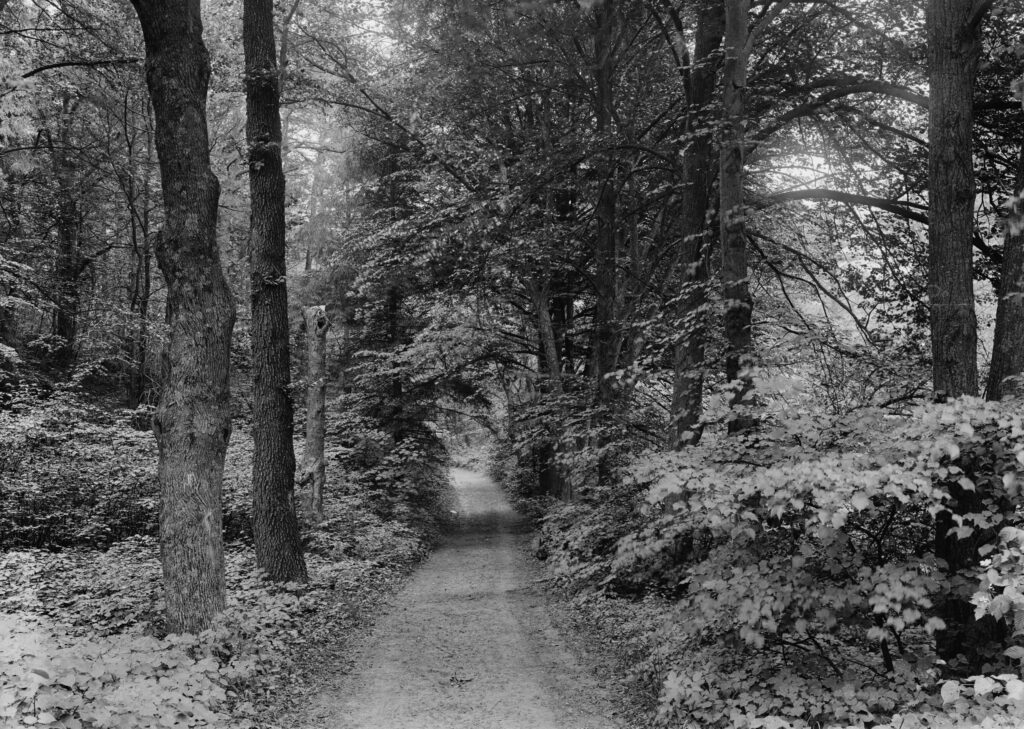The American writer and steadfast naturalist Henry David Thoreau is perhaps best known for his intricate memoir, Walden, from 1854, and his passionate essay “Civil Disobedience,” from 1849. With her latest novel, Followed by the Lark, Helen Humphreys reimagines his relatively short life. The story begins in 1822, when Thoreau was five, and follows him through fictionalized vignettes based on actual events — rarely longer than two pages and sometimes only a few fleeting sentences — until his death from tuberculosis at forty-four.
From a young age, Henry roams around his home in Concord, Massachusetts, delighting in the natural world. He cultivates friendships with mice, sketches obscure plants with Latin names, and follows a skunk as it ambles along —“trying to learn about its skunkness.” When a hummingbird flies into the parlour, it’s a welcome guest. The same goes for the bluebirds that nest by the back door and herald the arrival of every spring with a “sweet, short refrain.” For Henry, “a detail was never impersonal.” Accordingly, “paying attention was a kind of devotion.” His veneration continues into adulthood. As a grown-up, he tells a disdainful hunter, “Nature is my church.” The hunter’s response? “Well, you’ll go to hell then.”
Throughout Followed by the Lark, Henry agonizes over how little respect his contemporaries hold for the “true divinity.” He bemoans the encroachments of industrialization, such as the railroad between Concord and Boston that “changed everything” when it arrived in 1844 like a “shaking, smoking monster with sparks flying from its wood-powered belly.” He stews over the writings of his peers, including Walt Whitman, in whose poems “nature receded over a distant hill” so that “the listener was left with the striding I, I, I of the narrator taking up all the room in the landscape.” Henry is even ambivalent about his own work and ill at ease with his growing fame. His journal entry announcing Walden’s publication gives equal attention to the ripening elderberries and the yellowing bittersweet.

Following a transcendent path near Concord, Massachusetts.
Detroit Publishing Company; Library of Congress
There’s tension between Henry’s appreciation for the natural world and his obsession with surveying it. He long felt that Walden Pond, on whose shore he built the little house where he lived from July 1845 to September 1847, was “limitless.” Then he charted it, and its depth became “merely 102 feet.” Many readers will sympathize with Henry’s compulsion to catalogue, a habit that robs his subjects of their beauty, a “curiosity satisfied at the expense of mystery.” It’s a dilemma that the real-life Thoreau recognized in himself and his fellow nature lovers. “At the same time that we are earnest to explore and learn all things,” he once remarked, “we require that all things be mysterious and unexplorable.”
Death is a recurring theme in the novel. Henry and an absent-minded friend accidentally cause a forest fire that destroys 150 acres. Owl songs peter out as developers axe the Massachusetts woods to make way for “more and more homes and buildings.” Most notably, Henry’s older brother, John, nicks his finger while shaving, contracts tetanus, and dies eleven days later at only twenty-seven. Devastated, Henry reflects on their idyllic adventures — camping on Fox Island, hiking the Fairhaven Cliffs, rowing the Concord River — and, as a coping mechanism, uses them as fodder for his creative life. (There’s an unmistakable kinship here for Humphreys, who mourned the passing of her own brother, Martin, with her memoir Nocturne, from 2013.)
Nonetheless, Henry remains haunted by his brother’s death and, for some twenty years, struggles to move past it. Then, in his early forties, he revisits the Concord River and notices a “trailing parade of cardinal flowers, the stutter of red along the banks as deep and rich as arterial blood.” He has a realization that Humphreys beautifully expresses with a twist on a Heraclitan trope: “While it was the same river, he himself had become a completely different person.” Henry’s observation of his comparative finitude measured alongside nature’s “persistence” and “eternalness” inspires him to finally move past his grief while honouring his brother’s memory. Fittingly, as he lies on his deathbed three years later, he thinks of John calling him home.
While these details stick close to Thoreau’s true story, Humphreys does take liberties with her protagonist. The real-life writer was prone to bold pronouncements. “The mass of men lead lives of quiet desperation,” he asserted in Walden. In his journal, he commanded, “Breathe the air, drink the drink, taste the fruit, and resign yourself to the influences of each.” Humphreys’s character is calmer, less provocative. Her Henry prefers “sitting quietly” to participating in “raucous activities.” He keeps to himself even when “boisterous laughter” intrudes on his work. One of his best friends accuses him of being “cold and standoffish, of not saying how he really felt.”
Elsewhere, Humphreys faithfully depicts Thoreau and his “mercurial spirit,” and she captures his irritation with those who idolize him. Henry is constantly “embarrassed by the reverence” that transforms his creations into something “mythical,” much like the actual Thoreau, who once declared: “Rather than love, than money, than fame, give me truth.” Humphreys cannot be accused of blind admiration: her Henry Thoreau is imperfect — and relatable. Her sympathetic depiction makes the quiet and lyrical Followed by the Lark all the more heart-wrenching.
Michael Strizic was previously managing editor of the Literary Review of Canada.

